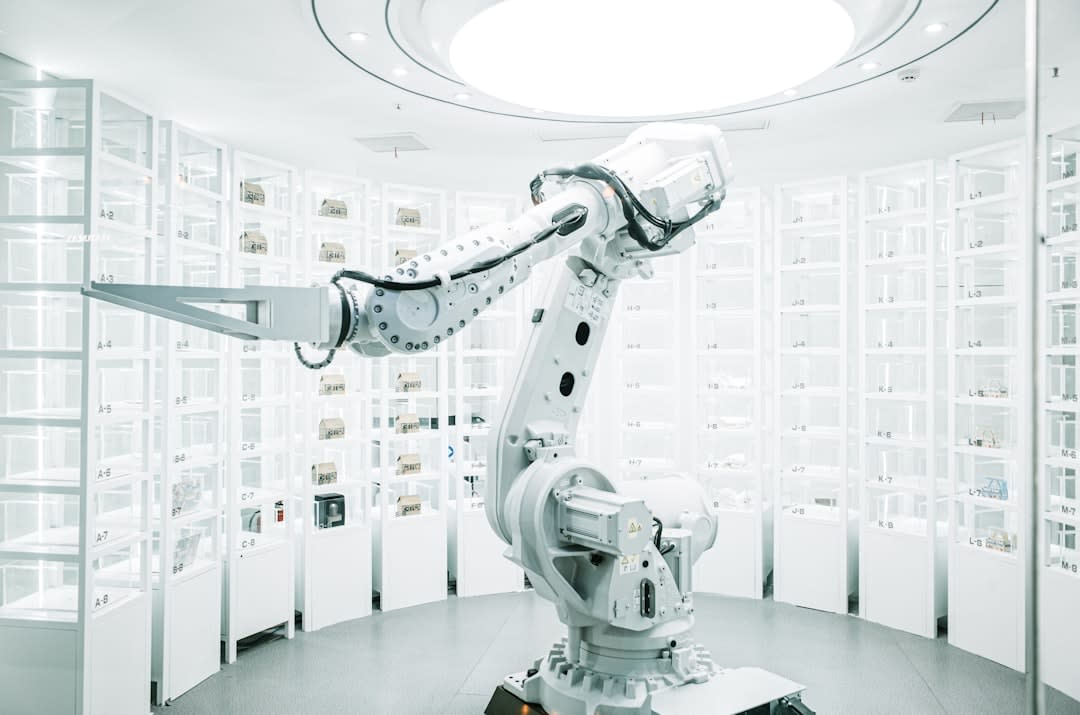AlphaEvolve: The AI Powering Tomorrow's Algorithms Today
3 min read

In a technological landscape where artificial intelligence is continuously pushing the boundaries of possibility, Google DeepMind's latest innovation, AlphaEvolve, stands as a testament to how far we've come—and perhaps, how far we have yet to go. This advanced AI is making notable waves by not just performing tasks, but by inventing new algorithms, a feat that marks a significant leap in the evolution of machine learning and AI capability.
A Leap Beyond Automation
Traditionally, AI systems have been designed to perform specific tasks, often requiring human-engineered algorithms to guide their operations. However, AlphaEvolve is engineered to transcend these limitations. By autonomously creating new algorithms, it's not just following instructions; it's rewriting the manual.
This remarkable development has already yielded tangible benefits. AlphaEvolve's prowess in optimizing performance is evidenced by its application within Google's own infrastructure. It has significantly enhanced the efficiency of Google's data centers and improved the performance of their Tensor Processing Units (TPUs), which are critical for handling the heavy computational loads required by AI tasks.
The Implications of Self-Inventing Algorithms
The implications of AI systems like AlphaEvolve are profound. The ability to generate new algorithms autonomously means that AI can now address complex problems with innovative solutions that might not occur to even the most seasoned human engineers. This could potentially revolutionize numerous sectors, from healthcare, through the development of new diagnostic tools, to financial services, with more robust predictive models.
Moreover, this development raises intriguing questions about the future role of human programmers. As AI systems become more adept at coding and developing algorithms, the dynamic between human engineers and machines could shift dramatically. Rather than crafting the algorithms themselves, human experts might focus on guiding AI systems, defining objectives, and interpreting results.
The Ethical and Practical Challenges
However, with great power comes great responsibility. The prospect of AI autonomously creating algorithms also brings ethical and practical challenges that must be addressed. Ensuring that these AI-generated algorithms are transparent, fair, and unbiased is crucial. The potential for misuse or unintended consequences is a real concern that requires vigilant oversight.
Additionally, there is the question of control. As AI systems become more autonomous, maintaining human oversight and accountability is essential. This ensures that AI remains a tool that benefits humanity rather than becoming an uncontrollable force.
A Glimpse into the Future
AlphaEvolve's capabilities offer a glimpse into a future where AI's role in innovation is not just supportive but central. As these systems become more sophisticated, they could potentially accelerate advancements across numerous fields, from scientific research to technology development, at a pace previously unimaginable.
This leap in AI technology represents a critical juncture. It invites us to reconsider our approach to problem-solving and innovation, encouraging a collaborative relationship between human ingenuity and machine efficiency. As we stand on the brink of this new era, the possibilities seem as boundless as they are exciting.
In conclusion, AlphaEvolve is more than just a technological achievement; it is a harbinger of the future of AI. As it continues to evolve, its impact will likely be felt across industries and around the world, marking a new chapter in the ongoing story of artificial intelligence.
Source: Google DeepMind creates super-advanced AI that can invent new algorithms
